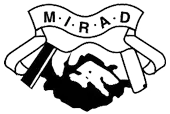The Driver and Vehicle Licensing Agency (DVLA) has issued a stern reminder that it's illegal to alter your number plates
Reg Plates ArticleThe Driver and Vehicle Licensing Agency (DVLA) has issued a stern reminder that it's illegal to alter your number plates

In anticipation of the new March changes, with the introduction of the "24" registration plates just around the corner, some motorists might be tempted to get ahead of the curve and modify their existing plates to reflect the new format. However, doing so could land you in hot water, with hefty fines of up to £1,000 on the table.
The DVLA is keen to ensure that all vehicles on the road are easily identifiable, and tampering with number plates, even in seemingly minor ways, can hinder this crucial task. This not only poses a safety risk but also makes it harder for law enforcement to track down vehicles involved in criminal activity.
So, what exactly constitutes "altering" a number plate? Here are some key points to remember:
Rearranging letters or numbers: This one's a no-brainer. Don't try to shuffle your registration around to make it appear like a "24" plate – it's illegal and easily detectable.
Using non-standard fonts or spacing: The DVLA has specific guidelines for the font and spacing of characters on number plates. Any deviation from these rules could render your plates invalid.
Adding decorative elements: Steer clear of stickers, gels, or any other embellishments that obscure or modify the appearance of your registration.
Tinting or dimming the background: The reflective background of number plates is essential for clear visibility, especially at night. Tampering with the reflectivity is a big no-no.
Remember, if your existing number plates are damaged, worn, or no longer meet the legal requirements, the only course of action is to get them replaced with new, standard plates from a reputable supplier. Trying to fix or modify them yourself is never a good idea.
The new "24" registration plates will be officially released on March 1st, 2024. If you're eager to get your hands on a fresh set, wait until then and do things the right way. It's simply not worth the risk of facing hefty fines and jeopardizing your vehicle's legal status.
In addition to the financial penalties, driving with illegal number plates could also lead to points on your driving license and even vehicle seizure. So, play it safe, follow the rules, and avoid any unnecessary headaches. Your car (and your wallet) will thank you for it!
Here are some additional resources that you may find helpful:
List of approved number plate suppliers: https://www.gov.uk/number-plate-supplier
By staying informed and following the regulations, you can ensure that your vehicle is legal and safe to drive on the road. Let's all work together to keep our roads safe and our number plates squeaky clean!
It all started back in 1991 when our love and obsession for private number plates was born.
Since then we have grown steadily over the years to become a leading light in the private number plate industry holding our own stock of high quality number plates and many thousands of registrations we are selling for trade and private clients including many celebrities and sports personalities.


- FREE TRANSFER SERVICE - your paperwork is handled by our trained team
- OVER 30 YEARS EXPERTISE - long established and trusted company
- DVLA RECOGNISED RESELLER - linked directly from the DVLA website
- TRADE ASSOCIATION MEMBERS - MIRAD and CN Guild members


